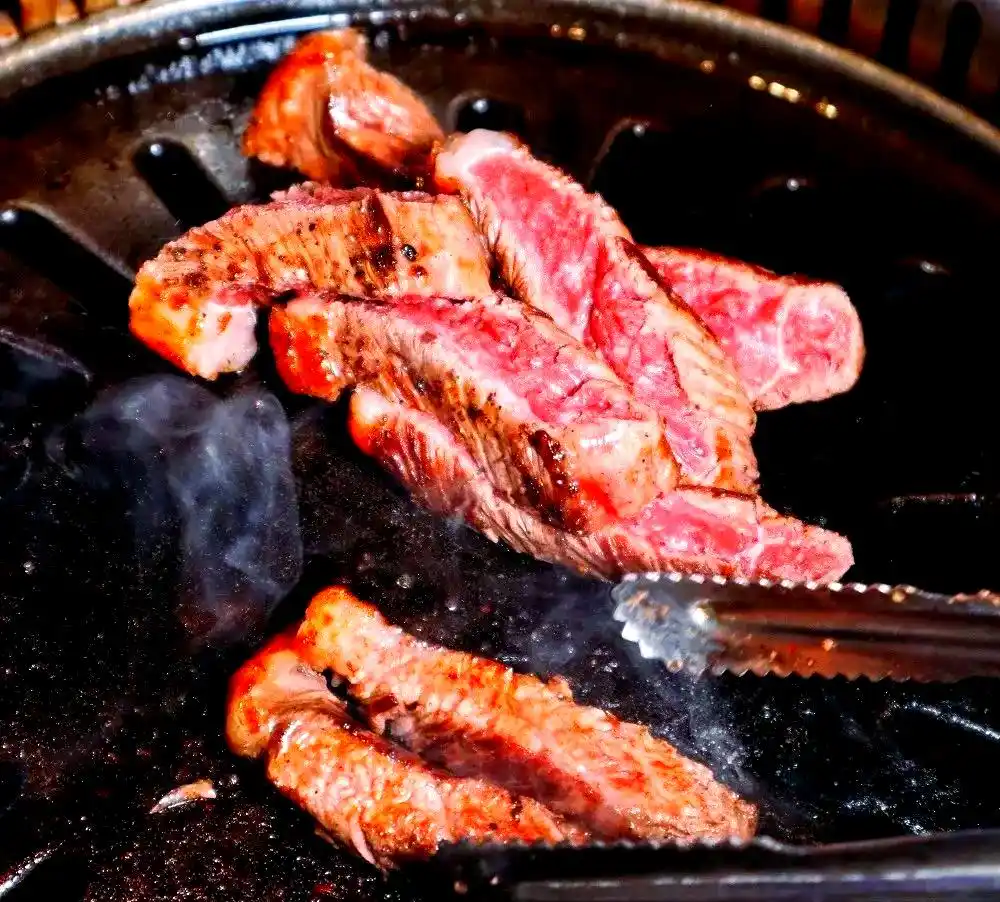Gas Grill
How gas grill works: Gas grills use combustible gases like natural gas, liquefied petroleum gas, or butane as gas grill heat source, cooking food through direct flame contact.
Advantages of gas grill:
Heats up extremely quickly for fast cooking of gas grill
Burns cleanly with only water and carbon dioxide as byproducts of gas grill
Locks in meat juices beautifully - creates that perfect crispy exterior with tender interior
Popular for steaks cooked medium-rare with excellent texture of gas grill
Disadvantages of gas grill:
More complex structure leads to higher prices for gas grill
Fuel costs more than charcoal or electricity
Requires proper ventilation to prevent carbon monoxide buildup
Potential for slight "gas" smell in food from additives
Gas cylinders require careful handling
Gas grill best for: Those who want professional results with convenience and control, especially for meat lovers who appreciate juicy, perfectly cooked steaks.
Electric Grill
How electric grill works: Electric grills use heated resistance wires in heating tubes to convert electricity into heat for cooking.
Advantages of electric grill:
Extremely convenient - just plug in and use
No smoke or dust, making it ideal for indoor use
Stable, even heating cooks food uniformly
Affordable to purchase and operate
Simple to use with minimal cleanup
Disadvantages electric grill:
Limited to locations with power access (not great for outdoors)
Lower maximum temperatures than gas or charcoal
Grilled food lacks smoky flavor complexity
Texture is more uniform without crispy/charred contrasts
Electric grill best for: Apartment dwellers or those who want easy, clean grilling indoors without smoke or fuss.
Charcoal Grill
How charcoal grill works: Uses solid fuels like wood chips, charcoal, or bamboo charcoal for combustion heating.
Advantages charcoal grill:
Imparts that classic smoky, charcoal flavor
Extremely high temperatures create perfect searing
Produces food with dry, fragrant exterior and chewy texture
More affordable basic models available
Traditional grilling experience many enthusiasts prefer
Disadvantages of charcoal grill:
Requires more skill to control temperature
Messier to use (carrying charcoal, lighting, ash cleanup)
Needs good ventilation due to smoke production
Food doesn't cook as evenly as electric models
High-end charcoal grills can be expensive
Charcoal grill best for: Purists who want authentic barbecue flavor and don't mind putting in extra effort for superior taste.
Which Grill Should You Choose?
Consider these factors when deciding:
Flavor priorities: If smoky, charred flavor is most important, go charcoal grill. For juicy meats with less smoke, choose gas grill. For basic grilled taste, electric grill works.
Convenience needs: Electric grill is easiest, gas grill is middle ground, charcoal grill requires most effort.
Usage location: Electric grill for indoors, gas grill /charcoal grill for outdoor spaces with ventilation.
Budget: Charcoal grill is cheapest initially, but consider long-term fuel costs.
Cooking style: Gas grill offers most control, charcoal grill provides traditional experience, electric grill is simplest.
Ultimately, the "best" barbecue grill depends on your specific needs, cooking style, and flavor preferences. Many serious grill enthusiasts eventually own multiple types for different occasions!

